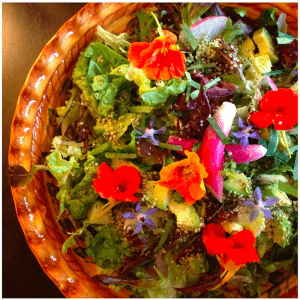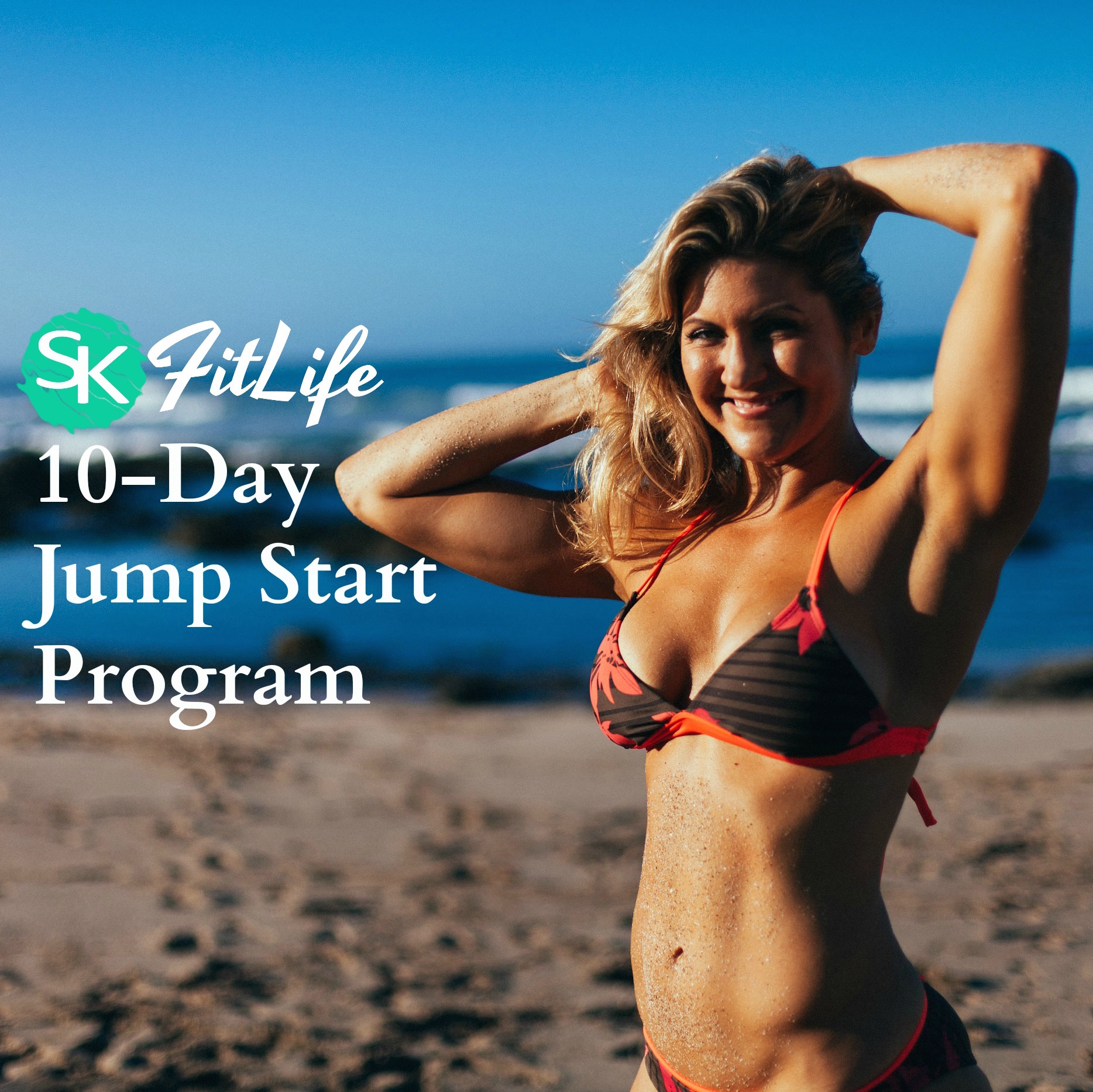Intermittent Fasting: Good or Bad?
by April Reigart
If you are at all involved or interested in physical fitness or health improvement, then you have likely heard of or are currently experimenting with the Paleo Diet. Many, many people are reporting excellent improvements to their health and well-being through subscribing to the Paleo Diet (though, of course, there is the backlash against the Paleo diet, too). The latest craze to sweep the Paleo community is Intermittent Fasting. Now, to right away answer the question as to whether IF is good or bad for you, well- nothing is that simple. Especially when it comes to nutrition.
The difficulty lies in the fact that we are all bio-individual. We are all as special and unique as little snowflakes, and there is no one prescription that will serve all. One person’s pleasure is another person’s poison, so to speak. The best way to go about deciding what is right for you is to weigh the positives against the negatives, to think about what makes sense to you both intellectually and intuitively, to think about what serves you morally, and most importantly- to experiment. Just like with a fabulous pair of jeans- you need to try new eating styles on to see if it is a good fit and makes you look and feel great! Look in the mirror and ask yourself- “does this diet make my butt look big?” (Diet, meaning- what and how you eat…not a temporary weight loss strategy…because we all know that doesn’t work long term, right?)
Okay, all kidding aside…let’s start by talking about some things that are universally agreed upon across all dietary theories. This is my favorite way to cut through the crap- to find what all the popular diets have in common. What can any vegan, vegetarian, macrobiotic and Paleo person agree upon? Water comes to mind, firstly. Everyone agrees on hydration being paramount to good health. Your body requires proper hydration in order to carry out its bodily processes, including kidney function and blood flow, as well as electrolyte balance. Dehydration impairs neurological functioning and decreases muscular endurance.
 Secondly, everyone can agree that more produce is the way to go. Paleo, macro, vegan- doesn’t matter, shut up and eat your greens! Vegetables contain many nutrients, antioxidants and disease fighting compounds which help to reduce inflammation, fight aging and many other benefits. Vegetables and fruits also contain fiber, which is essential for the health of your gut. Fiber acts as a pre-biotic, feeding the good bacteria in your gut, and also aids elimination of wastes.
Secondly, everyone can agree that more produce is the way to go. Paleo, macro, vegan- doesn’t matter, shut up and eat your greens! Vegetables contain many nutrients, antioxidants and disease fighting compounds which help to reduce inflammation, fight aging and many other benefits. Vegetables and fruits also contain fiber, which is essential for the health of your gut. Fiber acts as a pre-biotic, feeding the good bacteria in your gut, and also aids elimination of wastes.
Thirdly, every dietary theory can agree that getting rid of processed foods is more than ideal. By now, most people know that the processed food industry does not have your best interests in mind, and that cooking for yourself is the healthiest way to feed your body. In fact, I have never seen any health theory that recommends you eat candy bars, soda and snack chips. (This is not to discredit some of the great new conscious products happening out there. We all need a little convenience now and again. Jackson’s Honest chips come to mind- what can be so bad about sweet potato chips cooked in coconut oil? Also- frozen vegetables are a great healthful convenience. Just keep in mind, fresh and home cooked is best. Also, if you are a vegan- realize that imitation meat products are highly processed foods, as well.)
Lastly, everyone agrees on the importance of exercise and movement. The type and frequency recommended may vary and differ, but we all know we need to shake our tail-feathers. Afterall, sitting has now been dubbed as “the new smoking” (meaning, everyone does it and it’s BAD!). Find movement that makes you happy! So many people talk about how much they hate running, and I always say- then don’t run! Maybe you like to dance or practice martial arts? Go, do! Hire a coach or a trainer so that you feel confident in your work-outs and can get guidance on proper form, and so that you are being effectively pushed.
Ensuring you have these basic principles in place is a great place to start before you attempt to dive into advanced behaviors, like intermittent fasting.
You need to establish a strong foundation of great general health practices before beginning to experiment with more esoteric theories. Just about any person would see major health improvements by simply drinking more water, eating more vegetables, eliminating processed foods/refined sugars, and adopting an exercise program that works for them.
As a holistic health coach, I really view intermittent fasting as an advanced behavior that should not be undertaken lightly.
There are many purported benefits to infrequent fasting, and there are some drawbacks, as well. It is important to be in touch with your body and to understand what you want to get out of IF.
Benefits of IF
There are a myriad of benefits to intermittent fasting. Not the least of which is that it is a great antidote to the typical, hyper-energetic American diet. By hyper-energetic I am referring to the fact that most Americans are consuming far more calories than they burn. Food is energy- fuel…and we have to burn that fuel. When we sit down at a chain restaurant and consume one meal that contains over 2,000 calories, we are over burdening our bodies with the effort it takes to break down and store this excess fuel- not to mention the burden it places on our bodily systems to try to eliminate the toxins from a standard, conventional meal (food additives, chemicals, excess sodium in its chemical form, pesticides, GMOs).
Intermittent fasting decreases the time frame in which eating is occurring, usually to an eight hour window, so eating usually becomes a bit more deliberate and caloric consumption tends to be less since one is not eating all waking hours of the day. We have this sense of fear around the idea of being hungry, yet most of us don’t know the first thing about actually being hungry. We can also discover, through intermittent fasting, that hunger is a feeling that does not last, and we can work through it. With the exception of the fact that you should absolutely consume the right ratio of protein and carbohydrate within 30 minutes of a workout, the knowledge that you will not implode if you are a bit hungry is quite freeing! Allowing your body to process through its own system of detoxification and burn through any previously consumed calories also puts you in to the fat burning zone.
This is the biggest advantage to intermittent fasting. Cell repair increases during the fasted state, which helps to slow the aging process. IF can also improve hormone regulation, and causes an increase in production of HGH (human growth hormone), which results in greater endurance, faster muscle repair and burning of stored bodily fat. Fasting also helps to normalize insulin sensitivity, as your body switches from burning sugar/carbs as fuel and in to fat burning. IF will also help to normalize levels of the hormones leptin and ghrelin, which are responsible for regulating fat storage and signaling hunger, respectively.
Sugars
The natural sugars in any meal are stored in the liver as glycogen. When maximum glycogen has been achieved, any excess is stored as fat. When the body needs energy, it turns to its glycogen stores, and it takes about 6-8 hours to use up stored glycogen. When the glycogen stores are used up, the body turns to its fat cells for energy. This is why intermittent fasting is efficient for burning stored fat/weight loss- you are forcing your body to go past its stored glycogen in to fat burning mode.
IF can happen in a number of ways. Some people eat normally throughout the week and fast for either 24 or 48 hours of each week, or even once monthly. On fasting days they will consume no more than 500 calories, for example, a green tea for breakfast, broth for lunch and a salad for dinner. An alternative, which many find easier to implement, is to shorten the window in which eating occurs each day, usually to an 8 hour window. So, if you eat dinner at 7pm, you would not eat again until 11am. Many advise that a HIIT workout be done in the morning just before breaking the fasted state, for added fat burning benefit. (You would adjust your schedule accordingly.) Many women feel better if they fast for 14 hours, instead of 16- so, if dinner were at 7pm, breakfast would be at 9am. This is quite manageable for most, and the benefits can still be achieved.
Please note, though, that there is a big difference between deliberately starving oneself and delaying eating so that your body can detoxify.
More is not always better, and just because intermittent fasting may be helpful does not mean it would be more helpful to continue to not eat beyond reason. The only person who suffers when you starve yourself is YOU. Intermittent fasting is definitely not recommended for anyone with a history of eating disorder, as it is easy to slip back in to obsessive behaviors with food and controlling eating times. If you do try intermittent fasting and you find yourself becoming overly focused on food- constantly thinking of your next meal- then IF is not for you.
If at any time you find yourself fixated on hunger or watching the clock- then this is a clue that this might not be the best strategy. IF is not meant to be burdensome. You will not experience great health benefits if you are becoming stressed out. Stress takes a great toll on the body and the immune system, and if you are getting stressed out with trying to work IF in to your life- it will be counterproductive.
Following along with the idea of stress, IF is also contra-indicated in cases of adrenal fatigue. IF can bring on anxiety, fatigue and irregular periods. It can signal “famine” to the brain, which will bring on a hormonal response. If your adrenal function is already sub-optimal, this will further stress your system. Working out in the fasted state does cause a rise in cortisol levels, as does working out in and of itself. This could further complicate your adrenal fatigue and make it even harder to recover.
It is best advised, before beginning any new routine, to know where you are starting, especially with blood testing. A trip to a functional medicine practitioner can certainly put you on the right path to knowing where your body is, energetically speaking, and you can move forward with new eating plans or new routines from there. Constantly experimenting with intense workouts, carb-cycling, intermittent fasting- without knowing what is going on internally- can spell disaster. You can actually cause metabolic imbalance and adrenal fatigue simply by continually “bio-hacking” without a cause or a clue!
Want to try it?
If you want to try intermittent fasting, just remember to take it slowly and make note of how you feel. Remember that it is the consumption of protein and carbohydrates that tell your body to stop burning fat, so having a tea or coffee in the morning with a tablespoon of coconut oil can help you to feel satiated without taking you out of the fat burning zone. Know that it can take a few weeks or a few months for your body to get the idea that you want it to burn fat, and will eventually increase its production of fat burning enzymes.
If intermittent fasting is not right for you- don’t despair! You can still manage your weight and aid bodily detoxification without the extended periods of fasting. Try to not eat after you have finished dinner. Ideally, you should not consume food 3 hours before going to bed. Decrease snacking during the day. If you can allow 4-5 hours in between your meal times without snacking, your body will be able to move through its regular detoxification cycles.
Health and weight management don’t have to be hard or stressful. Some very simple strategies can go a long way for anyone: Focus on increasing the amount of healthy foods you eat- especially healthy fats. Stay hydrated with water and antioxidant rich herbal teas. Include some raw fruits and vegetables everyday. Increase your activity. Hire a coach to guide you. Be kind to your body and mind- take care of it, and it will take care of you!
Find more information about April and her holistic health coaching here. You can also listen to April’s Stop Chasing Skinny Podcast interview here!
Follow her on Instagram, Twitter, and Facebook. You are going to love her yummy food pics!


